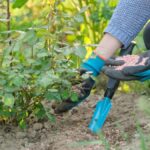Healthy hair growth is about far more than the products you apply to your scalp. For truly vibrant, resilient hair, it’s vital to nourish your body from the inside out and adopt supportive daily habits. Many women find that a multifaceted approach leads to the best results, combining nutrition, stress management, gentle hair care routines, and the thoughtful use of natural remedies. Whether you’re looking to regain thick hair after shedding or want to enhance the natural beauty of your strands, shaping your daily self-care routine around overall wellness is the best first step. For those seeking targeted daily support, hair growth supplements for women can play a complementary role in your holistic hair routine.
Healthy, lasting hair growth is not about quick fixes but about building strong foundations across various aspects of your overall wellness. Read on for in-depth guidance on nutrition, scalp care, protective hair strategies, and practical lifestyle adjustments for optimal, natural growth.
Nutritional Foundations for Hair Health
Strong, gorgeous hair is fundamentally based on a healthy diet. Because they need consistent access to certain vitamins, minerals, and proteins, hair follicles are sensitive to changes in your diet. Protein is necessary; keratin, a structural protein, makes up the majority of hair. Fish, lean meats, eggs, and plant-based legumes can all provide your hair with the vital amino acids it needs.
Iron is crucial for oxygen delivery to follicles. Iron deficiency is one of the most common causes of hair shedding, particularly in women. Sources such as spinach, red meat, pumpkin seeds, and fortified whole-grain cereals are excellent ways to maintain healthy iron levels. Omega-3 fatty acids further bolster scalp and strand health—fatty fish like salmon, as well as flaxseeds and walnuts, can help lower inflammation on the scalp and promote softness and shine.
Scalp Care and Massage Techniques
Your scalp health is directly connected to how well your hair grows. Stimulating scalp massage is a simple, science-backed method for improving circulation, delivering more oxygen and nutrients to the base of every hair follicle. According to a study, individuals who performed daily scalp massages for 24 weeks experienced a significant increase in hair thickness. The stress relief from this ritual is an added benefit.
How to Perform an Effective Scalp Massage
- Use gentle pressure and small, circular motions with your fingertips across every part of the scalp.
- Try natural essential oils, such as rosemary (research has shown it to encourage hair growth) or peppermint, for a cooling effect. Combine a few drops with a lightweight carrier oil, such as jojoba or almond oil.
- Massage for 5–10 minutes once daily. Even short sessions are effective.
A daily scalp massage can be a mindful and relaxing addition to your self-care routine.
Natural Remedies and Herbal Treatments
Centuries of traditional wisdom, now supported by emerging research, highlight certain natural substances that support scalp comfort and hair growth. Aloe vera is beloved for its gentle soothing benefits and ability to calm inflammation—apply its gel form directly to the scalp for 30 minutes before rinsing. Onion juice, rich in sulfur, may encourage collagen synthesis at the hair root and has shown promising early results for those with thinning hair.
Rosemary oil is now commonly included in modern hair products due to its strong evidence in promoting thickness and length. Many people find that regular use can be as effective as certain topical pharmaceutical treatments, without side effects such as itching or flaking. Add a few drops to your carrier oil and massage into the scalp several times a week.
Lifestyle Factors Impacting Hair Growth
Beyond what you eat and apply, how you live day-to-day dramatically affects your hair’s vitality. Chronic stress can disrupt the normal hair growth cycle and even prompt temporary hair loss. Mindfulness, meditation, gentle exercise, or even walking daily can help keep stress hormones in check. Regular, restful sleep (ideally 7–9 hours nightly) is the time your body undertakes the most repair, including growing new cells in hair follicles.
Equally important is hydration. Mild dehydration is often overlooked as a contributing factor to slow-growing or brittle hair. Drinking enough water each day not only supports scalp comfort but can also help prevent breakage and enhance natural shine.
Protective Hair Care Practices
Practicing gentle, protective hair care is crucial in preventing unnecessary breakage and promoting optimal growth. Excessive heat from flat irons, curling wands, and blow dryers can cause keratin bonds to soften and weaken the hair structure. Whenever possible, allow hair to air-dry naturally and limit the frequency of heat styling. Regular trims, performed every 6–8 weeks, remove split ends before they can travel further up the hair shaft, thereby preserving length and strength.
Likewise, opt for mild, sulfate-free shampoos to prevent stripping away your scalp’s protective barrier. The right hairbrush matters, too: opt for wide-tooth combs and soft bristles to avoid tugging, especially when hair is wet and fragile. Sleeping on a silk or satin pillowcase adds another layer of protection against friction and overnight tangling.
Conclusion
Supporting healthy hair growth is best accomplished through a holistic lens—one that considers nourishment, scalp care, gentle grooming, and daily habits. By integrating whole-food nutrition, mindful stress management, effective natural remedies, and protective hair care rituals, you can create an environment where your hair thrives naturally. Every positive step, from your morning meal to how you unwind before sleep, comes together to build hair that’s strong, glossy, and resilient in the long term.







